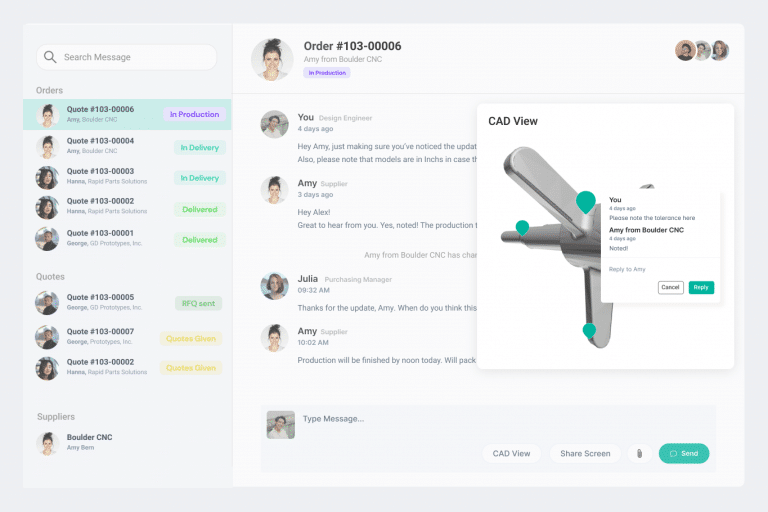If you’re like most business owners, you probably spend a lot of time worrying about your suppliers. After all, they are the ones who help you get your products to market! It’s essential to have a good relationship with your suppliers in order to ensure that your products are made efficiently and on time. In this article, we will discuss 10 strategies for managing supplier relationships and achieving better results.
What is Supplier Relationship Management?
Supplier relationship management is a system that helps you track and manage your interactions with suppliers. It can help you identify potential problems early on so that you can address them before they become a bigger issue.
Your SRM can be as simple as a series of internal documents or as complex as an end-to-end supply chain tracking platform.
1. Treat your suppliers as partners
It’s important to remember that your suppliers are your partners, not just vendors. When you view them in this way, you will be more likely to treat them with respect and courtesy. This is the key to building strong supplier relationships.
Make sure that you have regular communication with your key suppliers. This will help to ensure that everyone is on the same page and that there are no misunderstandings.
When your suppliers do a good job, be sure to let them know that you appreciate their efforts. A little bit of appreciation can go a long way in maintaining a good relationship.
2. Invest in supplier management software
Supplier management software can help you to track supplier performance, improve communication, and identify potential problems. It’s an essential tool for any business that wants to improve its supplier relationships.
The primary benefit of using supplier management software like Jiga is that it can help to improve communication. This is the key to a successful supplier relationship. Communication goes both ways, and you need to be sure that your suppliers understand what you expect from them and vice versa.
3. Make sure you pay on time
Nothing ruins a business relationship like a late payment. Make sure you pay your invoices on time in order to stay in good standing with your suppliers. If you are having financial trouble, be open about it and ask for a longer payment period or potentially a payment plan.

4. Be proactive about communication
If there is a problem with an order, don’t wait for your supplier to contact you. Pick up the phone and call them to discuss the issue. By being proactive, you can often prevent small problems from becoming big ones.
Open and honest communication is key to maintaining a good supplier relationship.
When you find a supplier you trust, stick with them. Developing long-term relationships with your suppliers can help improve communication and collaboration, as well as lead to better quality products and services.
In addition, established relationships can make it easier to negotiate favorable terms.

Benjamin S

Mechanical Engineer
"I wish this existed years ago!"
Jiga is the best way to get the parts you need, when you need them.
5. Create a system for rating suppliers
Not all suppliers are created equal. You should create a system for rating your suppliers, so you can make informed decisions about who to work with in the future.
Grading your suppliers using a supplier scorecard can help you identify the best and worst performers, as well as those who may need additional support.
One way to improve supplier relationships is to work on supplier performance reviews. This involves setting up an agreement with your suppliers that you will regularly review their performance and give them feedback.
This will help to ensure that they are meeting your expectations and help you identify any areas where they may need improvement.
6. Establish rules and expectations
Before you start doing business with a new supplier, establish some ground rules and expectations. This will help to prevent any misunderstandings down the road.
One of the most important things when it comes to supplier relationships is quality. Make sure that you establish quality standards and stick to them.
Before you start doing business with a new supplier, make sure that you negotiate terms and conditions that are favorable to both parties. This will help to avoid any problems down the road.
It’s also important that you are fair and reasonable in your expectations. Remember, your supplier is just another business, so be sure to treat them as such.
Finally, always be prepared to compromise. There will inevitably be times when both parties don’t see eye-to-eye. However, by using the strategies outlined above, you can minimize these disagreements and maintain healthy supplier relationships.
7. Make sure everyone is on the same page
In order to have a successful supplier relationship, it’s important that everyone is on the same page. This means ensuring that both parties have a clear understanding of what’s expected of them.
When it comes to supplier relationships, always make sure that your terms and conditions are in writing. This will help to avoid any misunderstandings or problems down the road.
A clear and concise contract that everyone has agreed to in advance is the best way to ensure that both sides know what’s expected of them.
In any relationship, communication is key. This is especially true when it comes to supplier relationships. You should always keep the lines of communication open so that you can discuss any problems or issues that may arise.
It’s also important to be fair and reasonable when dealing with suppliers. Try to avoid making last-minute changes or demanding unrealistic deadlines. This will only create unnecessary stress and frustration on both sides.
Make sure you are clear about what you expect from your suppliers in terms of quality, delivery, etc. By setting realistic standards, you can avoid disappointment and frustration on both sides.
8. Stay organized
The more organized you are, the easier it will be to manage your supplier relationships. This means keeping track of important information, such as contact information and order details.
The more transparent your supply chain is, the better. This will help to build trust with your suppliers.
Make sure that you treat your suppliers with respect. This will go a long way in building strong relationships. Keep an open mind and be willing to work together to resolve any issues that may arise.
9. Set up a system for tracking orders
An effective way to stay on top of your supplier relationships is to set up a system for tracking orders. This way, you can quickly and easily see where an order is at any given time.
Being able to track orders in real-time, or close to it, means you can spot problems early and work with your supplier to get them resolved.
10. Build a rapport with your suppliers
It’s also important to build a rapport with your suppliers. Get to know them on a personal level, and let them get to know you as well. This will help to create a more positive relationship.
As we mentioned in point number one, every supply chain works better when you treat your suppliers as partners and deal with them respectfully and openly.
This is the key to having a positive relationship with your suppliers. You should aim to develop a partnership where both sides feel like they are working together for a common goal.
Why do you need a system to manage your supplier relationship?
There are many reasons why you might want to invest in a supplier relationship management system.
One of the most common is that it can help you avoid disruptions in your supply chain. If you know what your suppliers are doing, and how they are performing, you can address problems early on. This can save you a lot of time and money in the long run.
Another reason to invest in an SRM system is that it can help you improve communication with your suppliers.
If you have a clear understanding of what your suppliers need, you can provide them with the information they need to do their job properly. This can save you both time and money, as well as improve the quality of your products.
Finally, a good SRM system can help you build better relationships with your suppliers.
When you have a strong relationship with your suppliers, they are more likely to be willing to work with you to solve problems. They may also be more inclined to give you discounts on their prices or offer other incentives.
All in all, there are many reasons why you might want to invest in a supplier relationship management system. If you are looking for ways to improve communication, avoid disruptions, and build better relationships, an SRM system is the way to go.

Javier L

